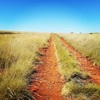There are a lot of eventualities that I prepare for when I go outside, even if the likelihood of them occurring is slim. I have a plan of action for injury, illness and unexpected weather and, over the years, a lot of those things have happened. But two weeks ago, while hiking in the Jefferson Wilderness of Central Oregon, I found myself in a situation that felt more like a movie plot than something you might be prepared for in a wilderness survival class
When Kids Get Lost: Preparing Your Child to be Safe Outside
Forum rules
The place for bushwalking topics that are not location specific.
The place for bushwalking topics that are not location specific.
5 posts
• Page 1 of 1
When Kids Get Lost: Preparing Your Child to be Safe Outside
http://seattlebackpackersmagazine.com/k ... fe-outside
from the land of the long white clouds...
-

wayno - Lagarostrobos franklinii

- Posts: 8685
- Joined: Sun 19 Jun, 2011 7:26 am
- Location: NZ
- Region: New Zealand
- Gender: Male
Re: When Kids Get Lost: Preparing Your Child to be Safe Outs
Great topic and article thanks for bringing it up and sharing Wayne.
My 2 are 19months & 1 week so I've still got a little time to prepare but that I will certainly have to.
Travis.
My 2 are 19months & 1 week so I've still got a little time to prepare but that I will certainly have to.
Travis.
-

Travis22 - Phyllocladus aspleniifolius

- Posts: 685
- Joined: Thu 15 Nov, 2012 7:11 pm
- Region: Victoria
- Gender: Male
-

Kainas - Athrotaxis cupressoides

- Posts: 410
- Joined: Mon 24 Nov, 2008 3:31 pm
- Location: The Hunter (Cessnock), Australia
- Region: New South Wales
Re: When Kids Get Lost: Preparing Your Child to be Safe Outs
In 2003 I received some kind of commanders award or honours citation thing from the police for leading the search party of 3 police officers (SES was not involved in this one because I found the kids within a couple of hours) into the hills near Sawpit Creek at night in the middle of winter to find 2 lost kids. I thought a bit about how stupid the situation was and how easily it could have been avoided with a little common sense. It was very much the fault of the father, not the kids.
When you take your young family into the bush try to make it back before last light.
Ensure all members of the family are prepared for the weather, eg, if it is winter in the Snowy Mountains they should dress in warm clothes, specially late in the afternoon
Don't take your kids, especially babies, off track in places you are unfamiliar with and not carrying a map and compass or GPS or sat phone,etc, etc
Never split up your family by telling 2 of your kids to stay put on the track as it gets dark and cold while you quickly escort your cold wife and baby back to the chalet.
Never expect kids to stay put even if you tell them how dangerous it is if they don't.
Carry a fully charged emergency communication device, even if it is just a mobile phone. Make sure it is fully charged before you start the walk. Having battery power could be the difference between being found or staying lost.
Teach your kids to respond to calls and cooees. If you're lost don't be shy. Make noise and reply. My parents made this a game when we camped and bushwalked when I was a toddler while teaching me the importance of using a cooee or call for help.
When you buy clothes, jackets for your kids, think about getting something with reflector strips or sew some on before you head out camping and bushwalking.
Local knowledge is vital. Get it and use it asap, even if it means breaking the rules and utilising someone without official qualifications, training or experience.
In the recent case of the Kendall kid going missing it brings to mind many others who have wandered off into farm dams, mountain gullies or fallen into old mines or dug themselves into a collapsed cave.
You can do a lot to prepare your kid for the great outdoors. Many little lessons can be taught as games, exciting family activities or weekend projects. Learning life skills at a very early age is when these skills will embed themselves in a young malleable mind and be used in everyday life throughout their adult years and prepare them to handle emergencies effectively. Not to mention giving parents lots of excuses to reconnect with their own innerchild.
Reflecting on my own childhood, stories of near disaster and tragedy helped scare me off doing really stupid stuff like digging caves and being out alone after sunset, heat and cold exposure. I was a solitary kid so from an early age, about 4yo, my parents and grandfather started teaching me small useful things like watching and reading the weather, watching and reading the activity of animals warning of an afternoon storm, using the sun and shadows to tell the time, direction and knowing when to turn around and go home, becoming familiar with poisonous plants/weeds, stomping during snake season, tracking skills to find a den or burrow in case I was caught out in a storm or overnight, finding other basic shelter like hollow logs and rock overhangs, climbing up means seeing the lay of the land while climbing down means finding water, etc, etc, etc
Building cubbies was a fun and simple game that taught me how to build a humpy. Building a temporary tree house also teaches how to build a raft, ie, making rope, tying branches together, creating a platform.
My cousin and I accidentally, intentionally on the part of our grandfather, learnt how to start fire while looking at plants through a magnifying glass.
My Warners Bay 6th grade teacher (1982), Greg Powell, took it upon himself to teach his classes as much as possible. As a cub/scout leader he extended that responsibility to pass on basic survival skills to his primary school students whenever the opportunity came up. I was lucky to be one of those kids and learnt a fair bit more before turning 11.
As a young family my parents set a great example to us kids going bush often, rarely shirking adventure and challenge like crossing creeks without bridges, exploring caves, climbing hills without tracks to get great views, learning from nature, everything was a lesson. We learnt stuff the hard way like how close is too close to the fire, recognising stinging nettles, not leaving the gas open too long before lighting it, what happens if you forget to pack sunscreen or fail to choose your tent site wisely.
Some kids just won't get it, it isn't in their psyche. Some kids will take to the bush and survivalism like a duck to water. For some kids it is like a 6th sense, like they were Roald Amundsen, John Muir or Edmund Hillary in a past life, they have a natural sense of direction and ability to survive and this needs to be nurtured. For the less instinctual kids it still needs to be taught and as a parent or guardian you'll pick up very quickly how much they need watching and protecting from themselves in the great outdoors.
I'm not a parent, thank the gods, so these observations are purely just that, stuff I have seen and experienced through close encounters with children and parents and my eternal gratitude having had such awesome parents and guardians who recognised a natural interest in survivalism.
When you take your young family into the bush try to make it back before last light.
Ensure all members of the family are prepared for the weather, eg, if it is winter in the Snowy Mountains they should dress in warm clothes, specially late in the afternoon
Don't take your kids, especially babies, off track in places you are unfamiliar with and not carrying a map and compass or GPS or sat phone,etc, etc
Never split up your family by telling 2 of your kids to stay put on the track as it gets dark and cold while you quickly escort your cold wife and baby back to the chalet.
Never expect kids to stay put even if you tell them how dangerous it is if they don't.
Carry a fully charged emergency communication device, even if it is just a mobile phone. Make sure it is fully charged before you start the walk. Having battery power could be the difference between being found or staying lost.
Teach your kids to respond to calls and cooees. If you're lost don't be shy. Make noise and reply. My parents made this a game when we camped and bushwalked when I was a toddler while teaching me the importance of using a cooee or call for help.
When you buy clothes, jackets for your kids, think about getting something with reflector strips or sew some on before you head out camping and bushwalking.
Local knowledge is vital. Get it and use it asap, even if it means breaking the rules and utilising someone without official qualifications, training or experience.
In the recent case of the Kendall kid going missing it brings to mind many others who have wandered off into farm dams, mountain gullies or fallen into old mines or dug themselves into a collapsed cave.
You can do a lot to prepare your kid for the great outdoors. Many little lessons can be taught as games, exciting family activities or weekend projects. Learning life skills at a very early age is when these skills will embed themselves in a young malleable mind and be used in everyday life throughout their adult years and prepare them to handle emergencies effectively. Not to mention giving parents lots of excuses to reconnect with their own innerchild.
Reflecting on my own childhood, stories of near disaster and tragedy helped scare me off doing really stupid stuff like digging caves and being out alone after sunset, heat and cold exposure. I was a solitary kid so from an early age, about 4yo, my parents and grandfather started teaching me small useful things like watching and reading the weather, watching and reading the activity of animals warning of an afternoon storm, using the sun and shadows to tell the time, direction and knowing when to turn around and go home, becoming familiar with poisonous plants/weeds, stomping during snake season, tracking skills to find a den or burrow in case I was caught out in a storm or overnight, finding other basic shelter like hollow logs and rock overhangs, climbing up means seeing the lay of the land while climbing down means finding water, etc, etc, etc
Building cubbies was a fun and simple game that taught me how to build a humpy. Building a temporary tree house also teaches how to build a raft, ie, making rope, tying branches together, creating a platform.
My cousin and I accidentally, intentionally on the part of our grandfather, learnt how to start fire while looking at plants through a magnifying glass.
My Warners Bay 6th grade teacher (1982), Greg Powell, took it upon himself to teach his classes as much as possible. As a cub/scout leader he extended that responsibility to pass on basic survival skills to his primary school students whenever the opportunity came up. I was lucky to be one of those kids and learnt a fair bit more before turning 11.
As a young family my parents set a great example to us kids going bush often, rarely shirking adventure and challenge like crossing creeks without bridges, exploring caves, climbing hills without tracks to get great views, learning from nature, everything was a lesson. We learnt stuff the hard way like how close is too close to the fire, recognising stinging nettles, not leaving the gas open too long before lighting it, what happens if you forget to pack sunscreen or fail to choose your tent site wisely.
Some kids just won't get it, it isn't in their psyche. Some kids will take to the bush and survivalism like a duck to water. For some kids it is like a 6th sense, like they were Roald Amundsen, John Muir or Edmund Hillary in a past life, they have a natural sense of direction and ability to survive and this needs to be nurtured. For the less instinctual kids it still needs to be taught and as a parent or guardian you'll pick up very quickly how much they need watching and protecting from themselves in the great outdoors.
I'm not a parent, thank the gods, so these observations are purely just that, stuff I have seen and experienced through close encounters with children and parents and my eternal gratitude having had such awesome parents and guardians who recognised a natural interest in survivalism.
thehappywalkblog.wordpress.com
Solo unaccompanied walk around Australia
Sponsored by The Australian Geographic Society
Solo unaccompanied walk around Australia
Sponsored by The Australian Geographic Society
-

TerraMer - Athrotaxis cupressoides

- Posts: 366
- Joined: Thu 19 Apr, 2012 4:18 pm
- Location: Australia
- ASSOCIATED ORGANISATIONS: The Happy Walk
- Region: Australia
Re: When Kids Get Lost: Preparing Your Child to be Safe Outs
Ive worked with kids for a long time, and one thing that adults forget is that kids have no sense of time. Hunger is now. thirst is now. waiting 20 minutes is like days, or just a quick walk around the corner could be an hour.
Another factor is that many kids will do anything to not get in trouble. So they will put themselves in more danger, thinking that if they can just get through it on their own, no one has to know, and they won't be in trouble. Especially if they have broken a rule, or curfew. That article is not kidding, kids will hide injuries, or try to act tough to avoid trouble.
It is a challenge with all the Stranger Danger type stuff that we tell kids. and the wilderness is not immune to creeps, so there is no easy answers.
One other thing I've heard is that shouting the kids name, especially at night, and while wearing a headlamp is one of the freakiest things you can do to a kid. I've heard that some SAR teams during night searches will use hand torches held lower, and just say a lot of "is anyone there, we are here to help, where are you" sort of things. I don't remember all the details, but I recall reading of a case where they realized that the kid was actively running away from the searchers and hiding, because they were so panicked they were convinced that whatever those shouty glowy things were, it was not people, and it was not friendly. In other cases the kid has curled up and gone to sleep, and the searchers have gone past them.
Another factor is that many kids will do anything to not get in trouble. So they will put themselves in more danger, thinking that if they can just get through it on their own, no one has to know, and they won't be in trouble. Especially if they have broken a rule, or curfew. That article is not kidding, kids will hide injuries, or try to act tough to avoid trouble.
It is a challenge with all the Stranger Danger type stuff that we tell kids. and the wilderness is not immune to creeps, so there is no easy answers.
One other thing I've heard is that shouting the kids name, especially at night, and while wearing a headlamp is one of the freakiest things you can do to a kid. I've heard that some SAR teams during night searches will use hand torches held lower, and just say a lot of "is anyone there, we are here to help, where are you" sort of things. I don't remember all the details, but I recall reading of a case where they realized that the kid was actively running away from the searchers and hiding, because they were so panicked they were convinced that whatever those shouty glowy things were, it was not people, and it was not friendly. In other cases the kid has curled up and gone to sleep, and the searchers have gone past them.
- Gadgetgeek
- Athrotaxis selaginoides

- Posts: 1209
- Joined: Sun 23 Sep, 2012 4:10 pm
- Region: Queensland
- Gender: Male
5 posts
• Page 1 of 1
Return to Bushwalking Discussion
Who is online
Users browsing this forum: No registered users and 13 guests
